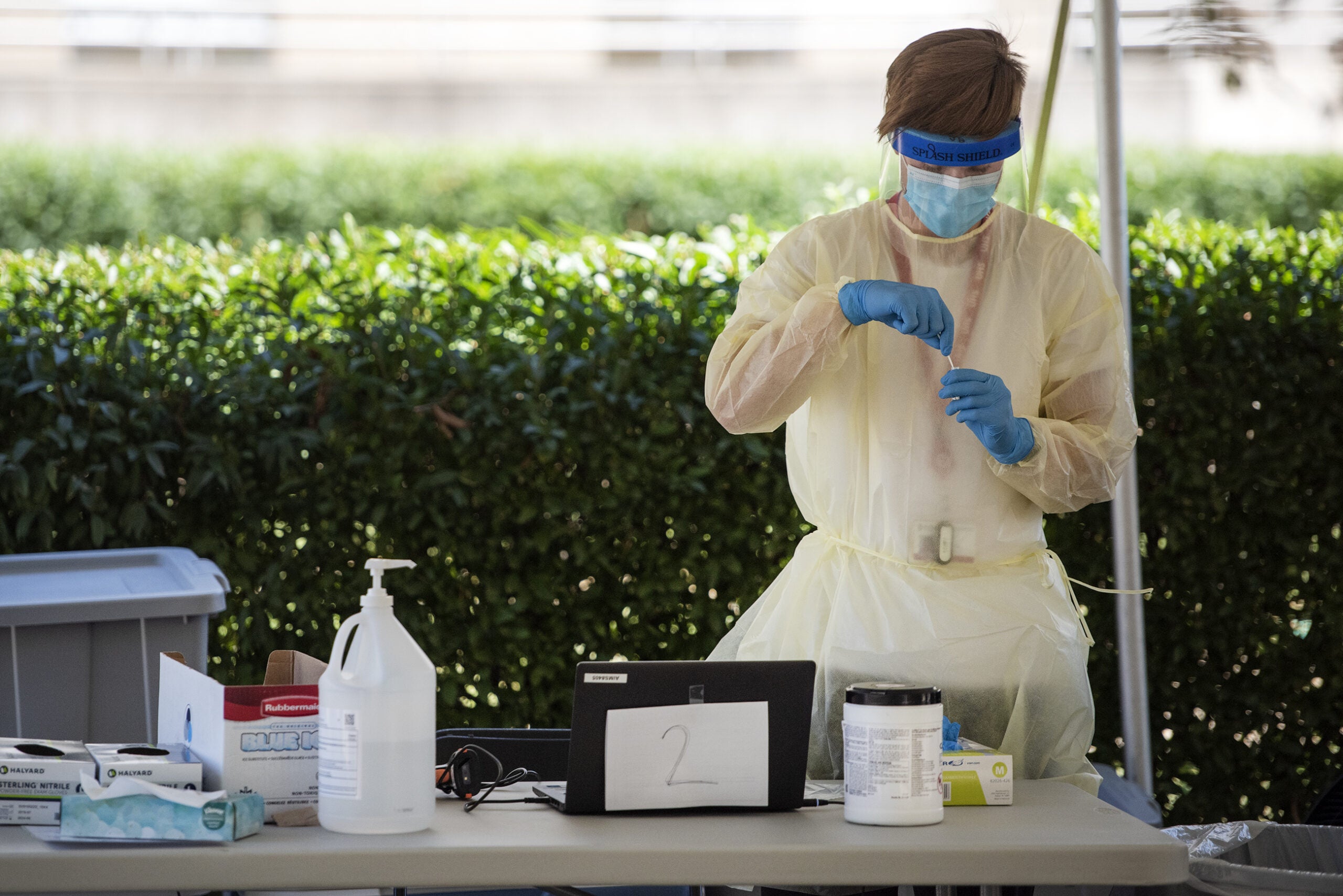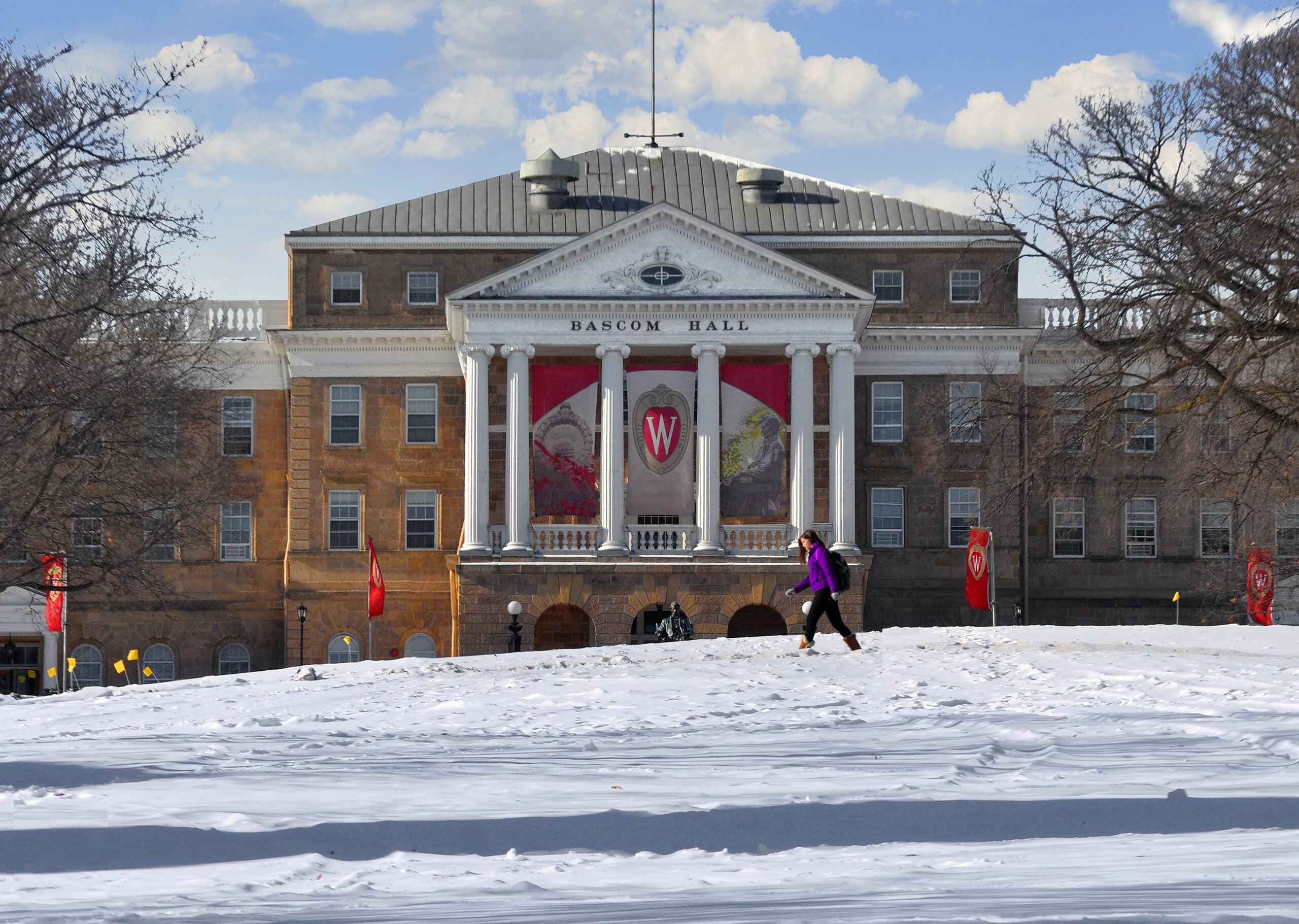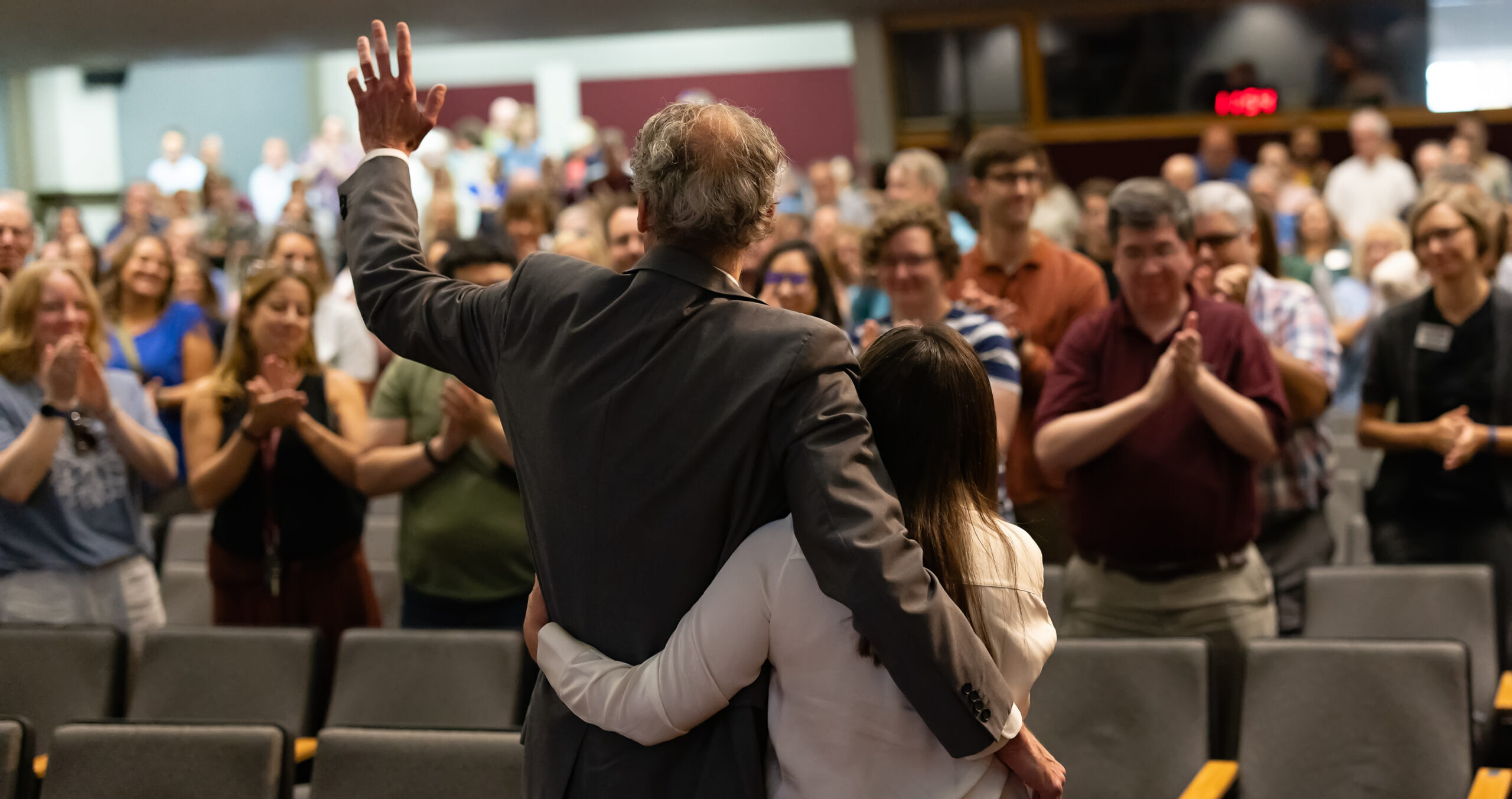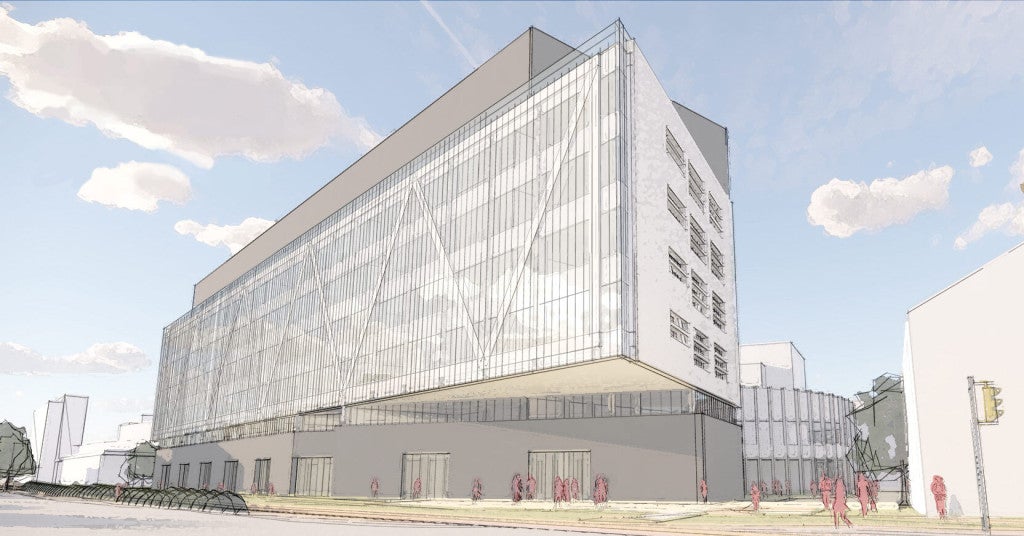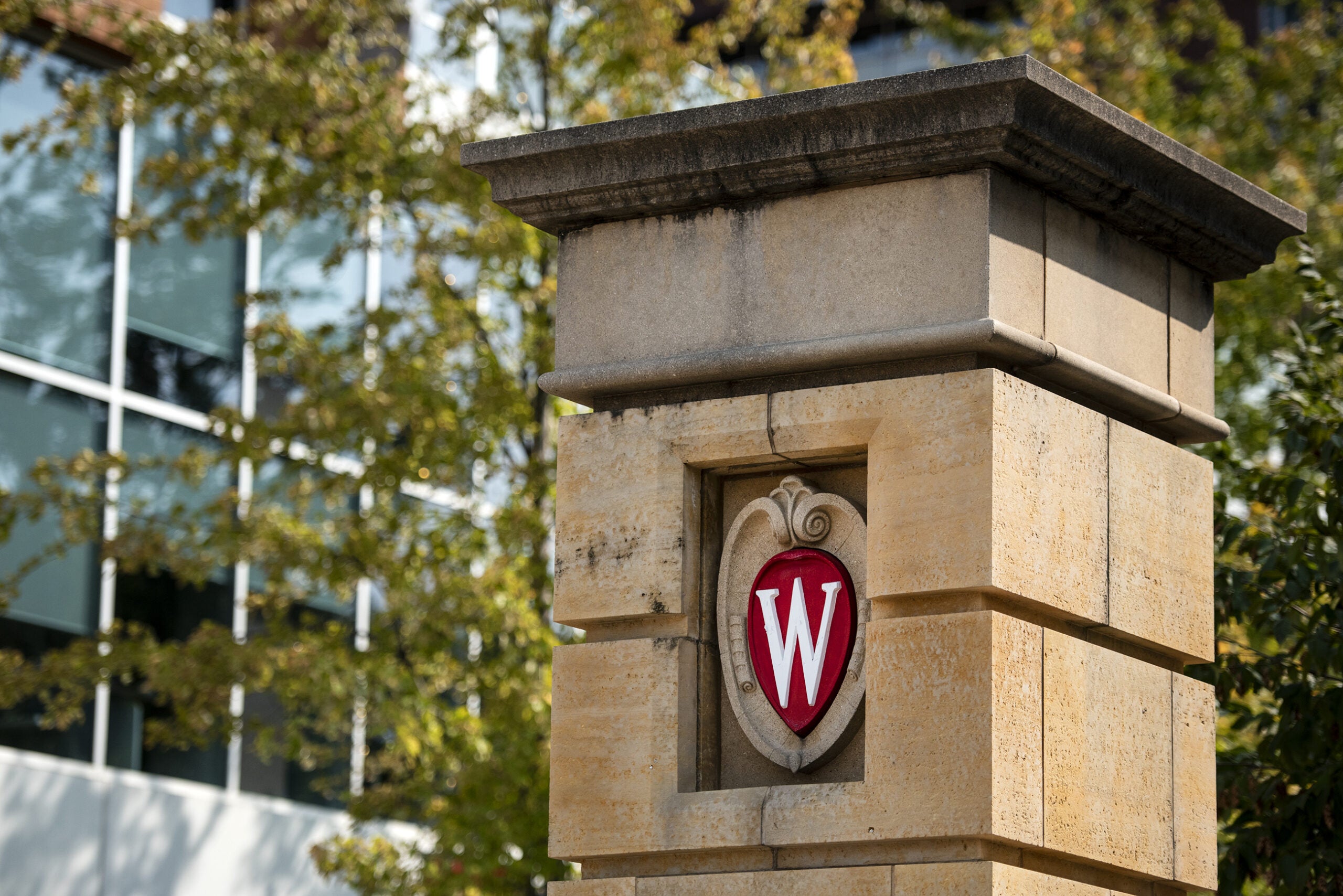University of Wisconsin System Interim President Tommy Thompson is calling the plan to use antigen testing to screen all dorm residents for the new coronavirus a success, while also noting the UW System is behind its goals for weekly surveillance.
In an interview with WPR, Thompson said prior to the start of the fall, some chancellors told him they were concerned that they wouldn’t be able to reopen campuses and bring thousands of students back safely. But since the rollout of a plan to use antigen testing to screen tens of thousands of students in residence halls twice a month, Thompson said they’ve become optimistic, even excited.
“We were able to put together, I think, the antigen testing program, which is probably the most complete of any college system in America,” Thompson said.
Stay informed on the latest news
Sign up for WPR’s email newsletter.
In early August, the UW System announced it would purchase 317,000 antigen tests, which detect coronavirus proteins and can provide results within 15 minutes. They can be 96 percent accurate in detecting the virus, but health experts note the sensitivity of the test is highest within two to five days of the onset of symptoms. Still, the consensus is that regular antigen screening can detect potential outbreaks faster than what is known as PCR-RT testing, which detects genetic material in the coronavirus.
The UW System antigen testing program has faced hurdles since it was announced. Just weeks after the initial announcement, Thompson told the UW Board of Regents that the federal government attempted to redirect its order for antigen tests and the machines used to process them to nursing homes around the country. Though he said the UW prevailed, the shipments coming from testmaker Quidel have not been consistent.
Thompson said while they’ve ordered 20,000 antigen tests per week, shipments from Quidel have been sporadic.
“Sometimes we’ll get 15,000. Sometimes we’ll get 6,000. Sometimes we get 600 or 800,” Thompson said. “But it’s a continuation. And right now we have received 100,000 tests and we’re about halfway through those tests out on the campuses.”
The antigen testing program is being used at 12 of the 13 UW System universities. UW-Madison has its own program, which uses PCR tests for all students.
This week, some UW campuses told WPR they were still scaling up antigen testing of dorm residents. In particular, UW-Eau Claire said it was “a few weeks away” from being able to do enough daily antigen tests to get through its 3,900 on-campus residents every two weeks.
Thompson acknowledged the UW System, as a whole, was not quite at its goal.
“We wanted to do 20,000 a week,” Thompson said. “That’s our goal. And we’re below. But we have, right now, 100,000 tests that we have to give to the campuses and we’re ramping up.”
In early September, WPR asked each of the 12 comprehensive universities how many dorm residents were anticipated this semester. All but UW-Parkside provided data showing a conservative estimate of around 28,593 tenants in residence halls. Thompson said the order of 317,000 antigen tests would be enough to test each of them twice a month between Sept. 2, when most UW campuses started classes, and Thanksgiving.
Since Sept. 2, there have been significant spikes in positive cases identified via antigen and PCR testing. UW-Madison announced it was pausing in-person classes one week after they began and quarantining two residence halls, along with multiple off-campus fraternities and sororities, due to outbreaks. As of Thursday, a total of 2,466 students and 45 employees have tested positive for the new coronavirus. The campus also announced on Thursday that one student has been hospitalized as a result. UW-Madison’s seven-day positive rate is 7.5 percent, which has decreased from a high of 10.2 percent on September 13.
UW-La Crosse also moved its classes online temporarily due to outbreaks after less than one week of in-person classes. The university reported that 46 of 79 PCR tests had come back positive on Thursday. Antigen testing identified 13 positives out of 239 dorm residents. UW-La Crosse has noted that students testing positive via antigen testing are then given PCR tests and can therefore be counted twice. The positive rate from PCR testing results on Thursday was 64.7 percent.
UW-Whitewater’s COVID-19 dashboard reported 97 students and one employee tested positive since Sept. 13. Nearly 30 percent of all tests at UW-Whitewater have come back positive between Sept. 3 and Wednesday.
Some campuses, like UW-Green Bay have had few COVID-19 positives reported. The campus COVID-19 dashboard shows that 283 students have been tested since Sept. 2 with 12 positives. That works out to a 4 percent positive rate.
Thompson pointed to UW-Green Bay as an example of campuses doing well with cases and testing. The university has tested a total of 1,721 students under the UW System antigen testing program, which is just over its entire dorm population.
Despite outbreaks and two of 13 UW System campuses pausing in-person instruction, Thompson told Wisconsin Health News on Friday that closing UW campuses “is not on the table.”
When WPR asked what the UW System testing plan would look like for the spring semester, Thompson said he wasn’t ready to “unveil” any specific plans. But he said it would include antigen tests, likely from Quidel.
“After Thanksgiving when the students leave to go home and before the second semester, we will take into consideration and calculate all that we learned from the first semester. And then we’ll develop a second plan.”
Wisconsin Public Radio, © Copyright 2025, Board of Regents of the University of Wisconsin System and Wisconsin Educational Communications Board.
